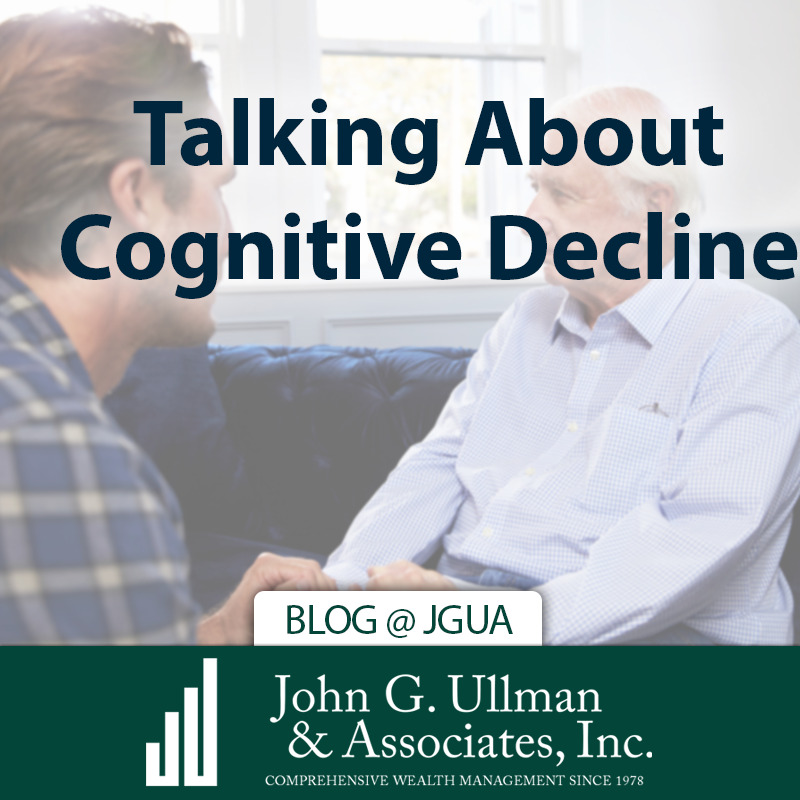Written by: Brandi B. Graham, CTFA, CFP®
Talking about cognitive decline may be difficult, but avoiding the topic can be financially devastating. We have all heard stories about the elderly person who paid thousands of dollars to “help a grandchild who was in an out of state accident” only to find out the grandchild was perfectly fine and at home. Alternatively, what about the “Amazon” account fraud or IRS telephone call scam? Fraud artists are out there and prey on anyone with cognitive deficiency. They know that people with early dementia are most lucid during the early part of the day, which is why many will target their calls to the afternoon.
If you are in your 40’s or 50’s you should consider having this conversation with your financial advisor now while you are in full control of your decisions. Most financial advisors will recommend that you name a “Trusted Contact” on your account. This person does not have any control of your account and need not even know they are a trusted contact. In the event your advisor has reason to believe someone is taking advantage of you financially, your advisor can reach out to your trusted contact for help.
Planning ahead for health problems later in life can be a tremendous gift for your children and other loved ones. Having the right legal documents in place will help to avoid court involvement when determining who will represent you both financially and in mental capacity. Your financial advisor will work with you and your attorney to make sure that you have the right documents in place (power of attorney, healthcare proxy, advance directive, trusts, wills, etc.) to meet your current and future needs. Simply having these documents in place does not mean you are giving up control. You still have full control of your decisions and you can change or revoke these documents at any time.
At some point, you will want to introduce your children or other family members to your financial planner to ensure continuity in your financial plan. If for any reason your family needs to step in to oversee your finances, they will have a better understanding of your financial history and future goals through engagement with you and your financial planner. Getting the next generation involved can often bring families together and the younger generation will benefit from your lifetime knowledge.
Let’s face it; we are all aging. Aging is a natural process and we should not be afraid to talk about Alzheimer’s, dementia and cognitive decline with our financial planners and family. Don’t be the victim; plan ahead.







